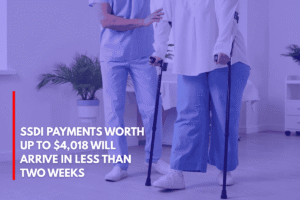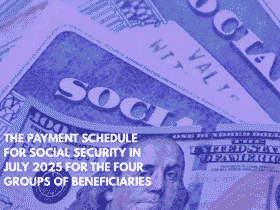In the United States, many people think turning 62 means it’s time to retire and start collecting Social Security. While it’s true that you can begin your benefits at that age, it might not be the smartest choice if you want more money every month. Experts and even the U.S. government agree—waiting a few more years can really pay off.
How Many Years Do You Need to Work to Retire?
To qualify for Social Security retirement benefits in the U.S., you must earn 40 work credits. That usually means working and paying taxes for at least 10 years. You can earn up to 4 credits per year, depending on how much money you make.
If you haven’t reached 40 credits, you won’t be eligible for Social Security retirement payments.
What Happens If You Start at Age 62?
Age 62 is the earliest age you can start receiving Social Security benefits. But if you begin this early, your monthly check will be permanently reduced. You’ll get less every month for the rest of your life compared to someone who waits.
For example, if your full retirement age is 67 and you start at 62, you could lose up to 30% of your monthly benefit.
When Do You Get the Most Money?
To get your full benefit amount, you need to wait until your Full Retirement Age (FRA). This age depends on the year you were born:
- Born between 1943 and 1954: FRA is 66
- Born in 1960 or later: FRA is 67
If you wait until age 70, your monthly benefit will be even higher—about 8% more for every year you delay past your full retirement age. However, after age 70, there’s no extra gain, so it’s the latest you should wait.

What If You Work While Collecting Social Security?
If you start collecting Social Security before your FRA and keep working, your payments might be reduced temporarily if your income is too high. Once you reach your full retirement age, those reductions stop, and your benefit amount is adjusted.
Tools That Can Help You Plan
To make smart retirement decisions, the Social Security Administration (SSA) offers free tools online:
- Retirement Benefits Planner – Helps estimate your benefit amount and find your best retirement age.
- my Social Security Account – Lets you see your earnings, update information, and get payment estimates.
- Retirement Calculators – Show what your monthly check could look like at different ages.
- You can also visit usa.gov for tips on retirement savings, worksheets, and more planning help.
Deciding when to start Social Security is a big choice that affects your income for the rest of your life. While you can begin at 62, waiting until full retirement age—or even 70—can give you a much larger check every month.
It’s important to know how many years you need to work, how your age affects your benefits, and how continuing to work plays a role. Using the tools from the SSA can help you make the best decision. Planning ahead now means more peace of mind—and more money—later on.














Leave a Reply